Their long tail and towering crest make them extremely conspicuous during flight!
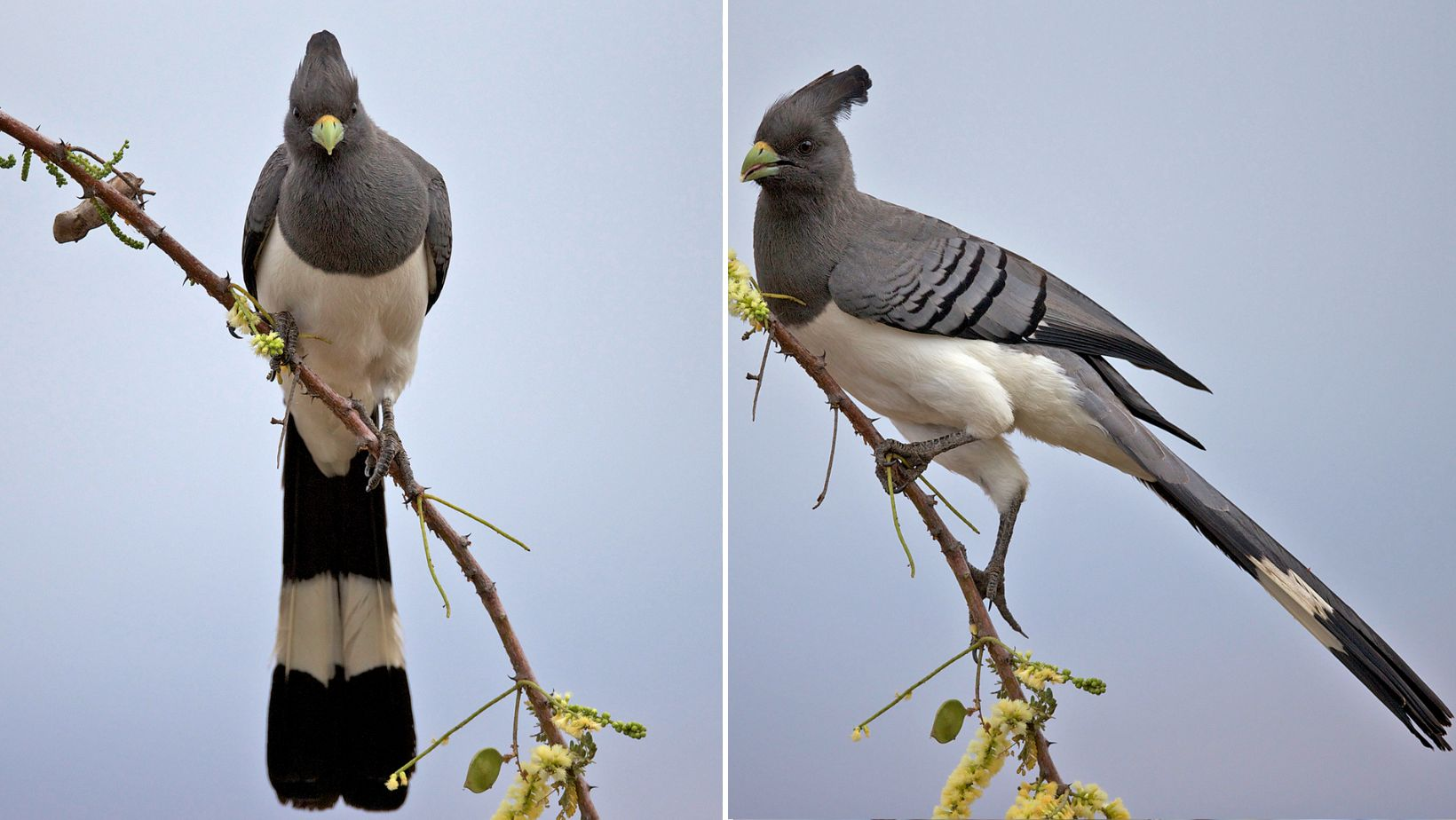
Meet The White-bellied Goawaybird
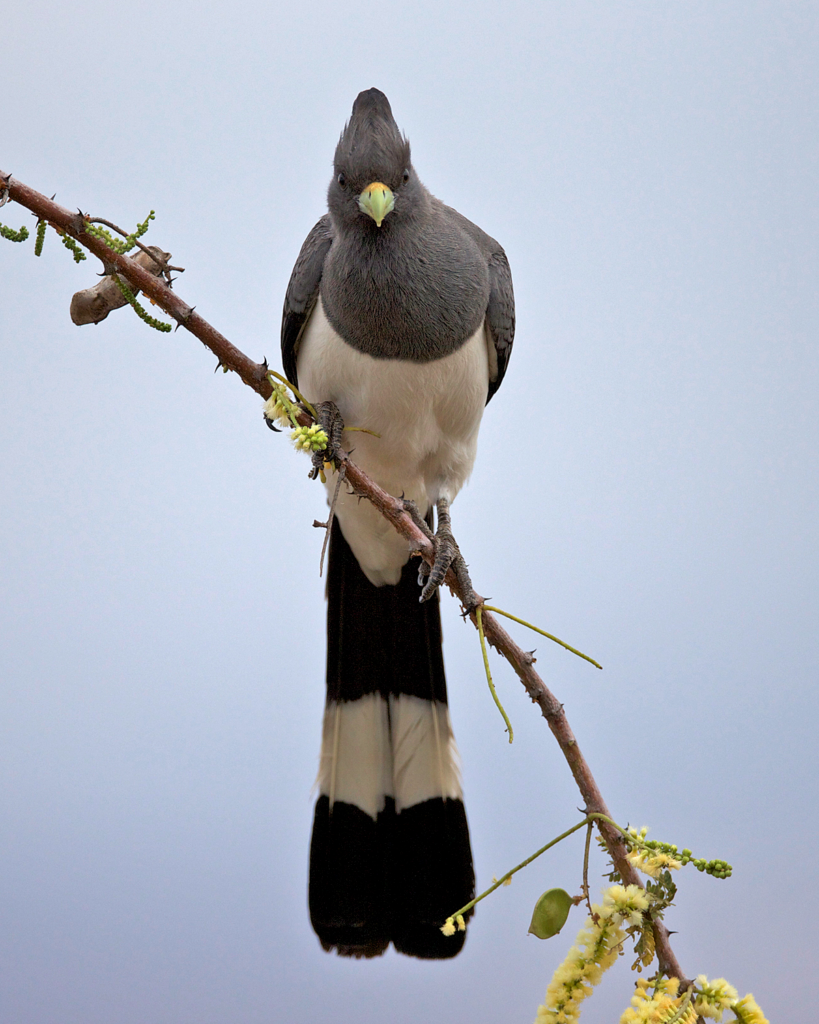
The white-bellied go-away-bird (Crinifer leucogaster) has a long pointed grey and black tail with a white median band characteristic of the species. It has a white patch under both wings which is only visible during flight. Adults have a grey head which gradually fades to a dark grey to black pointed crest. The belly, as the bird’s name implies, is white, as are the under-tail coverts.
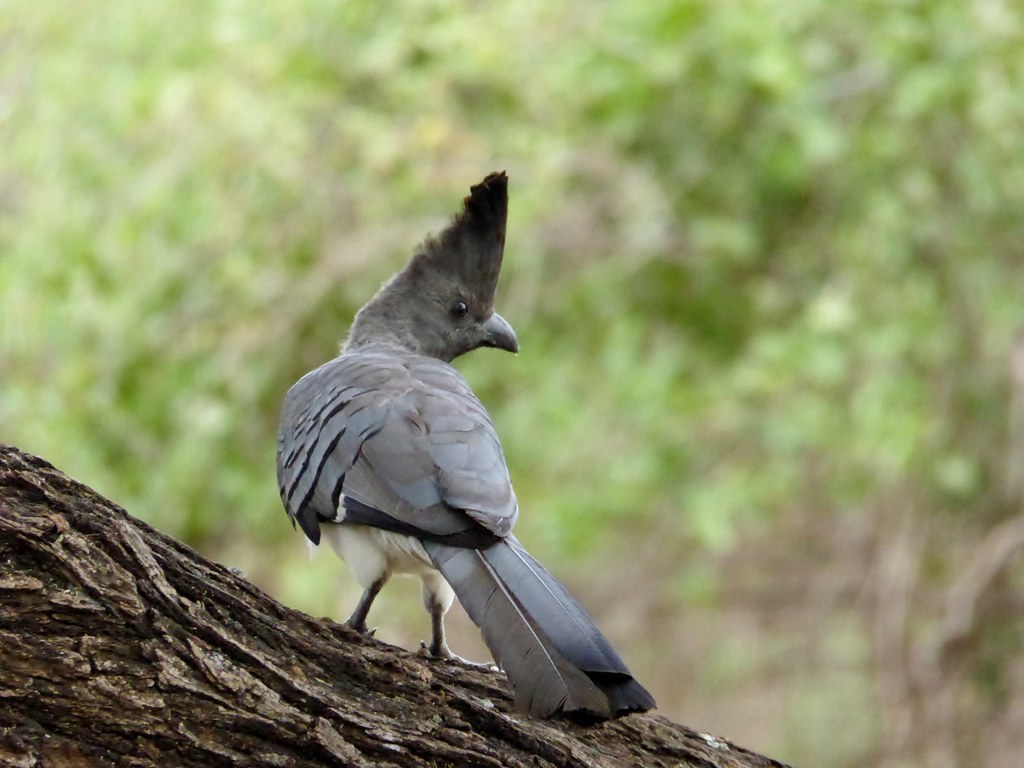
Females and males tend to look similar, however, the female is larger weighing in at 225g – 250g.
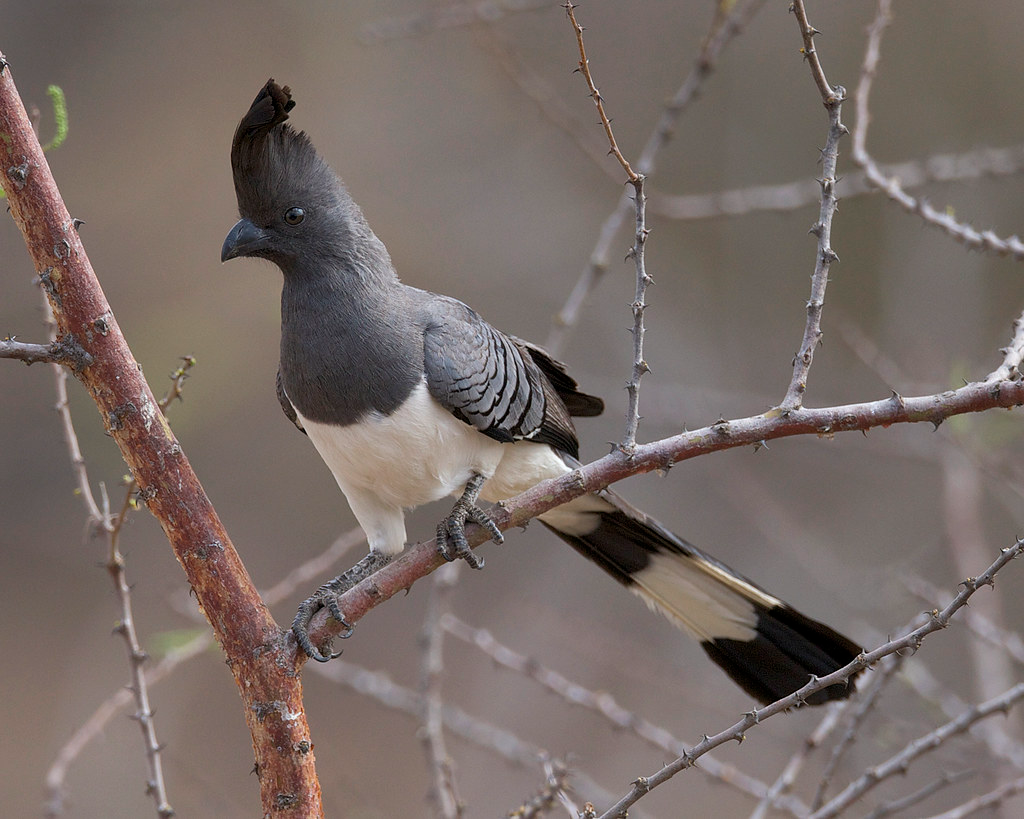
While the males only weigh 170g – 225g.
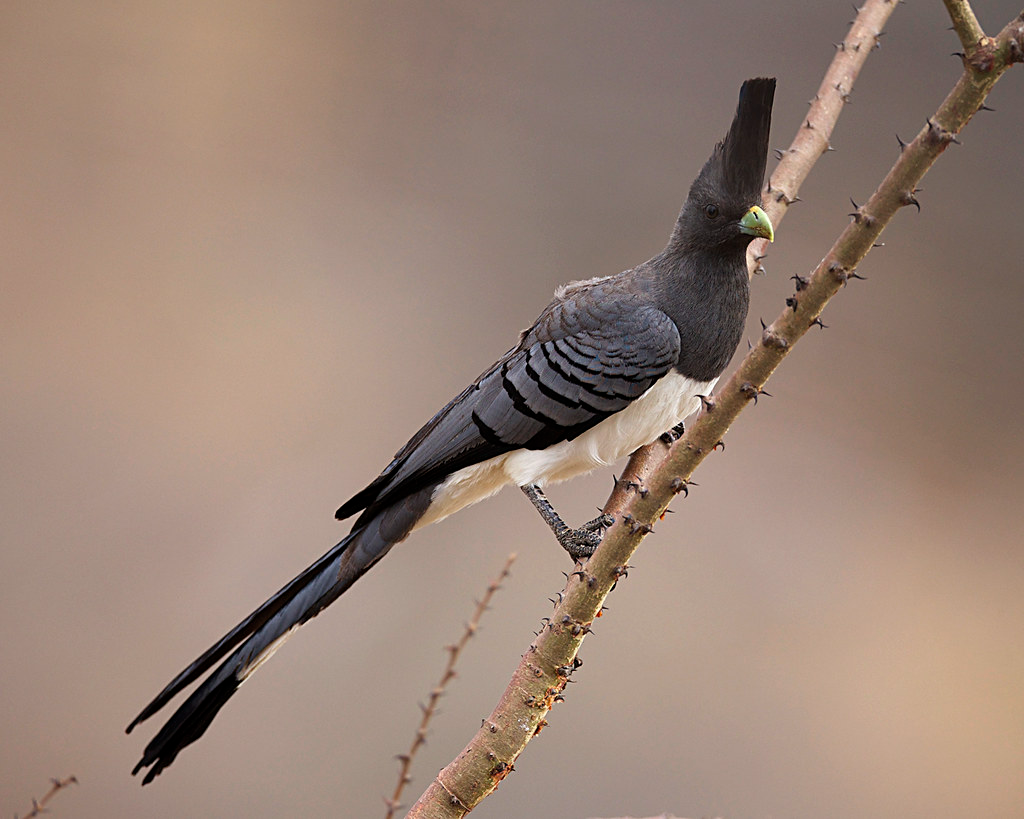
This species occurs across a vast area in E and NE Africa. It is found in Somalia, W Ethiopia, S Sudan, NE Uganda, N, and E Kenya, and southwards into the eastern plateau of Tanzania.
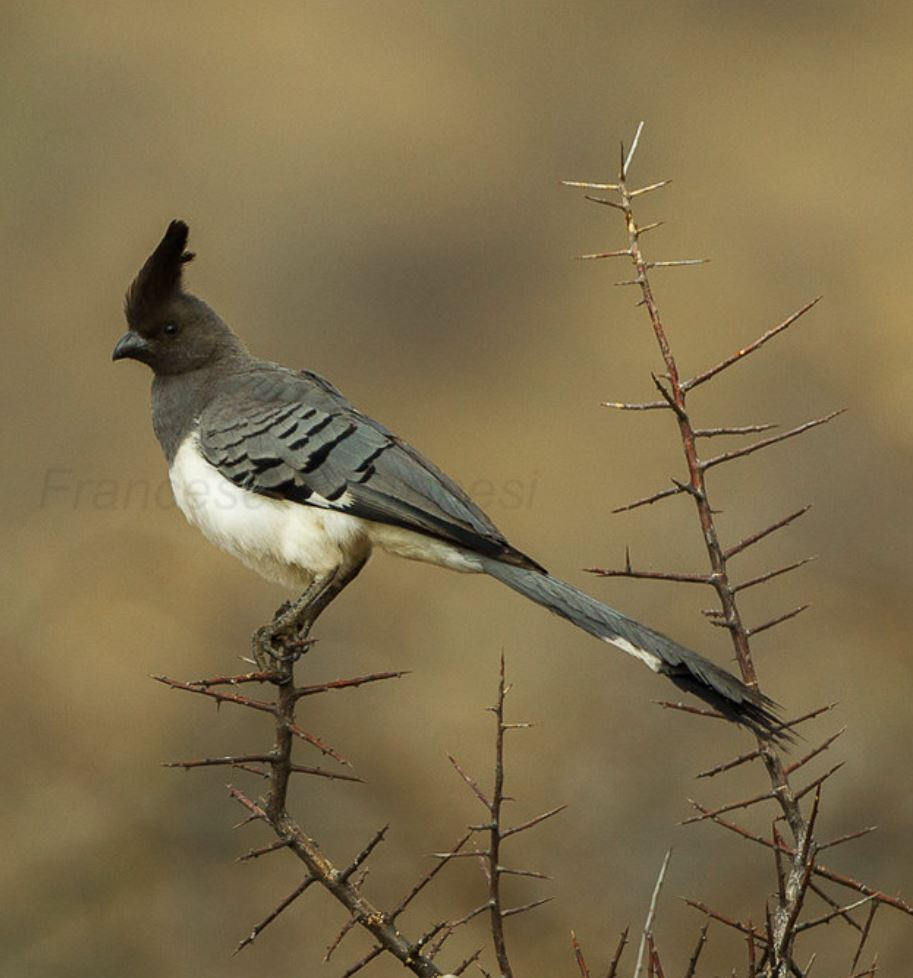
These birds like to inhabit hot acacia steppe, savanna, and woodland areas.
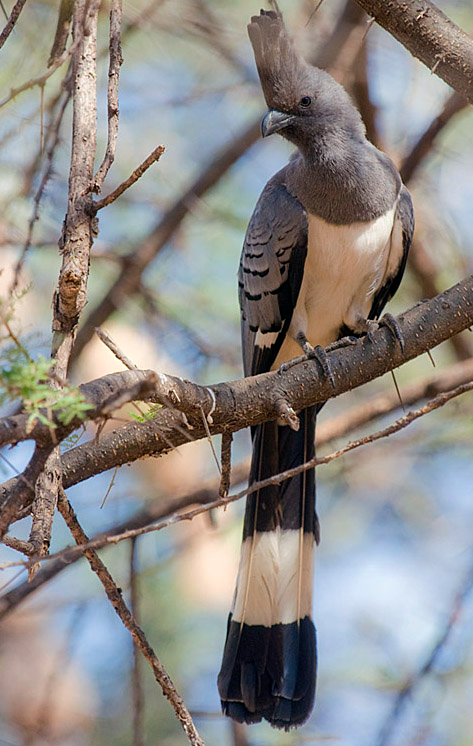
The white-bellied go-away birds feed primarily on plant matter such as fruits, flowers, nectar, seeds, and buds of acacias. The species is also known to eat some invertebrates, such as winged termites found when foraging.
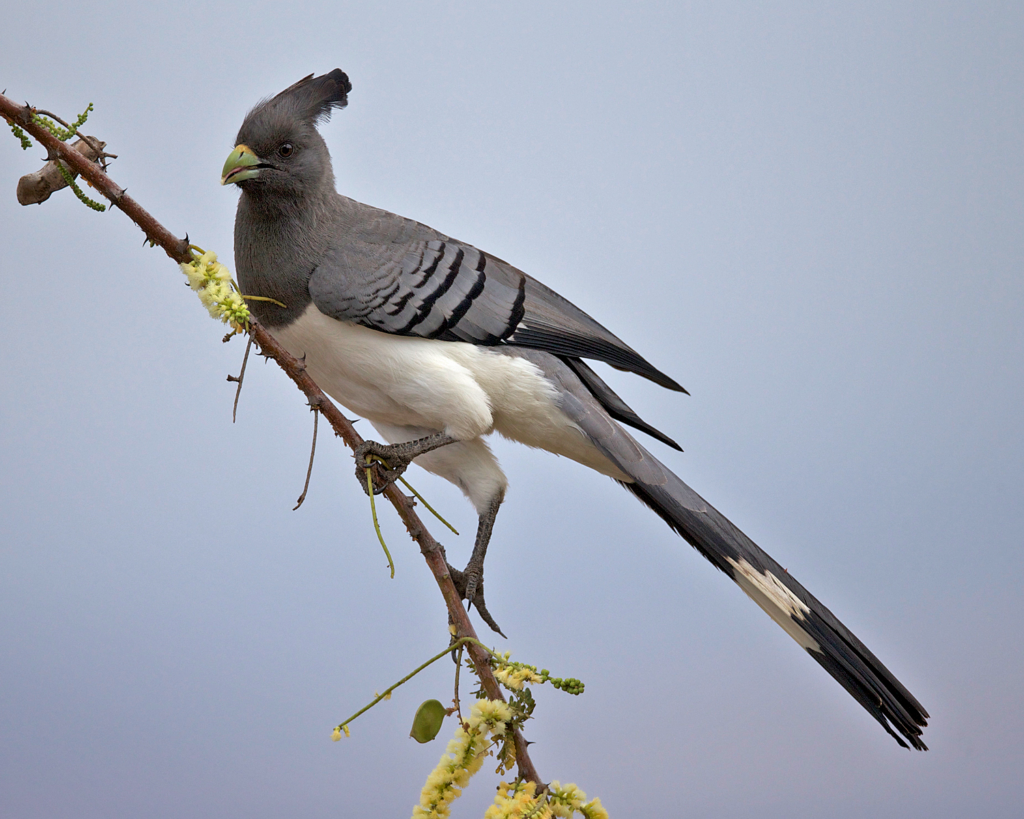
The breeding season usually starts when the rainy season starts, a time when go-away-birds become much more vocal. Courtship behavior consists of chases from tree to tree along with elaborate displays. Birds are monogamous and mutual feeding has been reported between partners. A nest is built in an acacia-like tree, about 3-12m above the ground. 2 to 3 eggs are laid within and incubated for approximately 4 weeks. Chicks’ first flight occurs around 4-5 weeks after hatching.
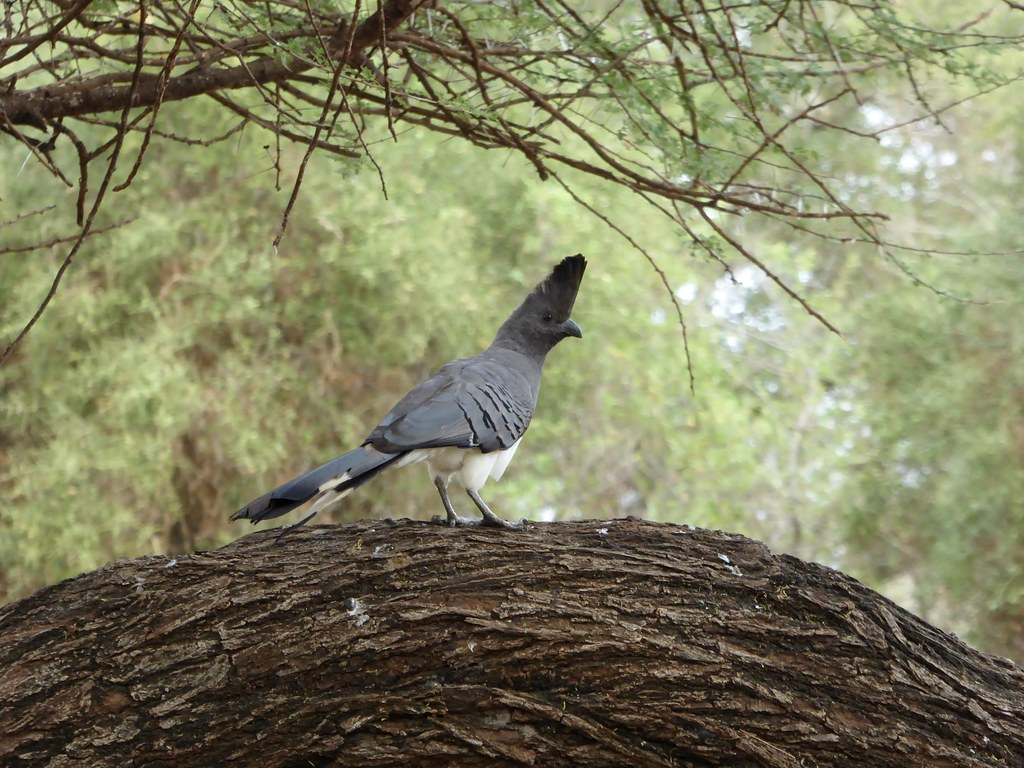
The population of white-bellied go-away birds has not been quantified. Its conservation status is stated to be “of least concern”.
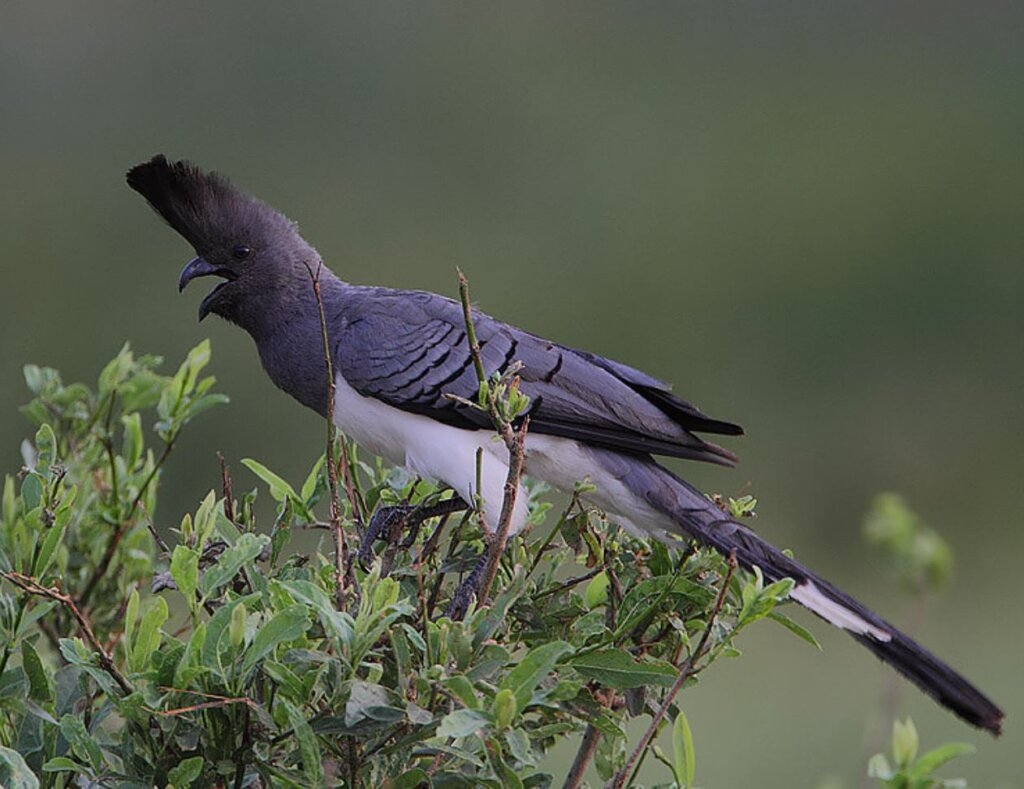
This is because the population is not believed to be below 10,000 mature individuals and the bird has a wide distribution of over 3 million km2.
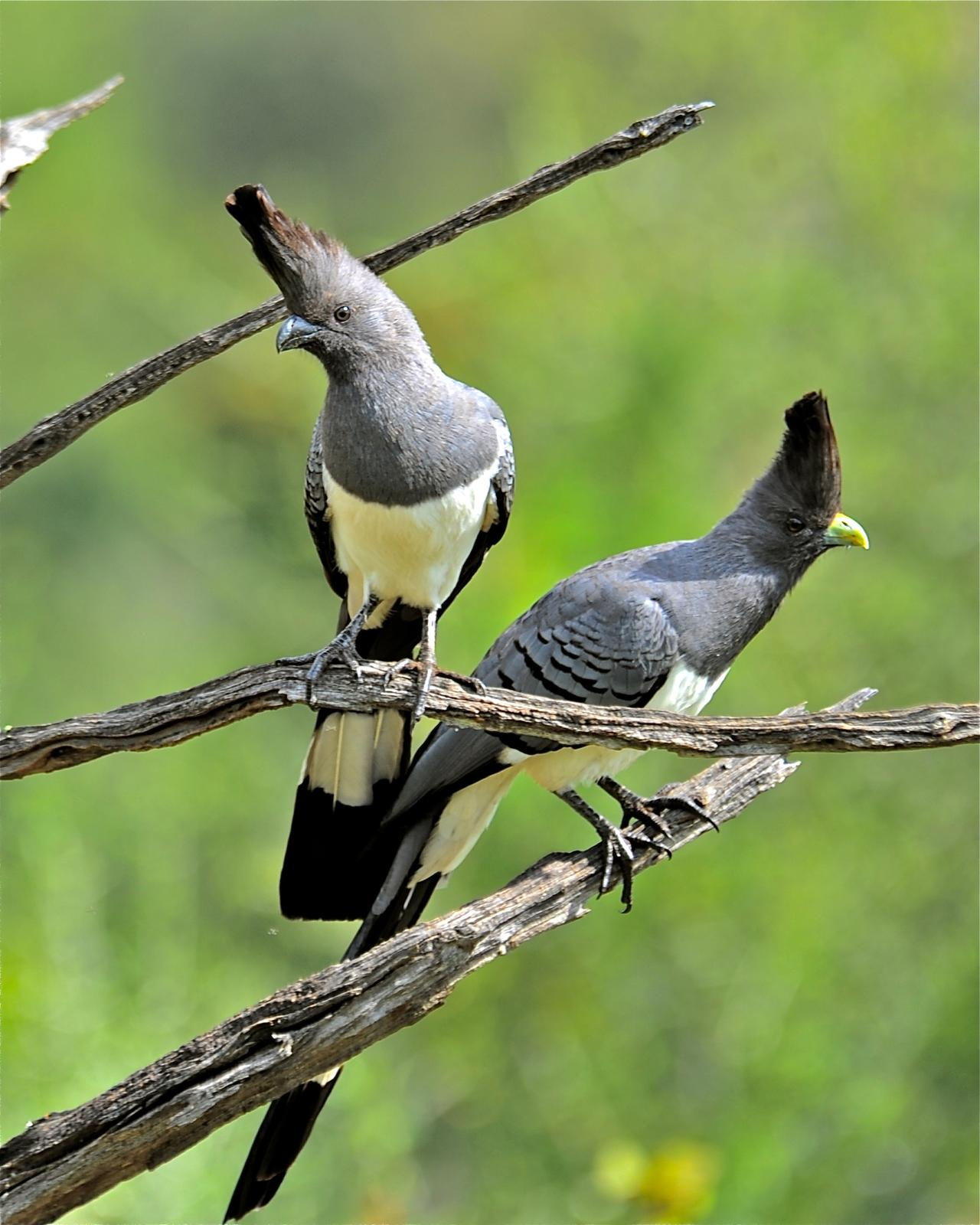
WATCH AND LISTEN TO THIS BIRD RIGHT HERE BELOW:

